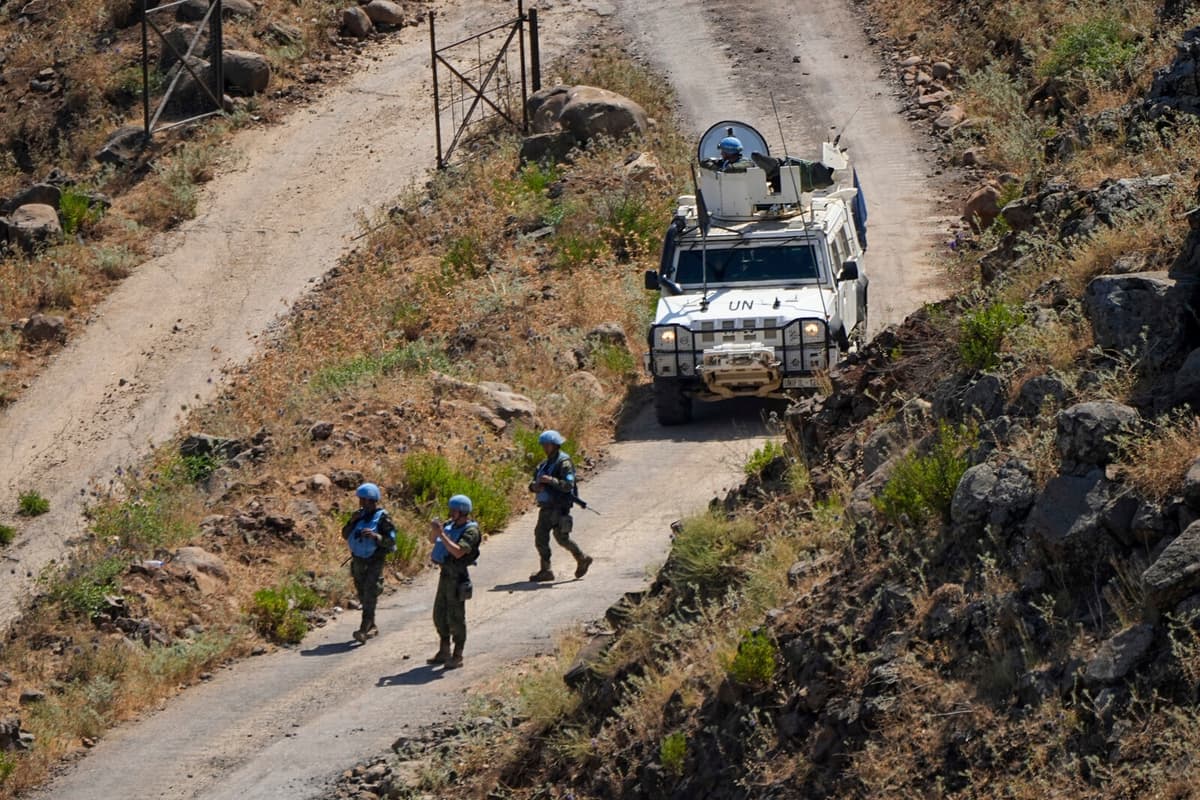Satellite images showed a few days ago how Israel has placed forces right next to a base belonging to the UN's peacekeeping mission Unifil at Lebanon's southern border, which, among others, Bellingcat has noted. At least 30 Israeli military vehicles, newly cleared roads, and some adjacent vineyards that had been leveled with the ground were seen.
"This is an extremely dangerous development", Unifil warned a week ago, and reminded that all parties involved must respect the safety of UN soldiers and the peacekeeping mission.
But during the week that followed, UN posts have been shelled by Israel on several occasions, and several soldiers have been injured.
"A threat from Israel"
The approximately 11,000 UN soldiers have, since the last war between Israel and Hezbollah, 18 years ago, been tasked with keeping the peace in a special buffer zone in southern Lebanon.
Israel's placement of forces next to a UN base has sparked outrage in Ireland, as the base houses Irish soldiers. Israel has called on the international forces to withdraw completely, which Ireland's President Michael Higgins has taken as a threat and an insult.
Israel claims to have the safety of UN soldiers in mind. Hezbollah accuses Israel of using them as human shields.
We see our presence there as crucial. We are the international community's eyes and ears. Our goal is to create space for diplomacy and delivery of necessary humanitarian aid, says Commander Kevin Kenny to Financial Times.
Spain also has soldiers on site. Military sources tell the newspaper El País that a withdrawal would stop insight into events on the ground:
And it's always uncomfortable with witnesses, especially for an invading power.
To be disarmed
When the Security Council established the buffer zone through a resolution in 2006, it was partly intended that Israel would stay out of Lebanon, and that groups like Hezbollah would be completely disarmed.
But the Islamist movement has instead grown in strength, and its attacks on Israel over the past year have forced tens of thousands of Israelis to flee their homes. Israel motivates its attacks on Lebanon as self-defense.
There is still a valid UN resolution that requires Hezbollah not to take up positions south of the Litani River, and the Israelis can point to that at any time, says Hezbollah expert Matthew Levitt to Foreign Policy.
In August 2006, the UN Security Council adopted Resolution 1701, which aimed to put an end to the war between Israel and the Lebanese Shia movement Hezbollah.
Israel withdrew after a 34-day-long invasion of its neighboring country. It had begun after Hezbollah staged a rocket attack as a diversion for an attack near the border, where several Israeli soldiers were killed and others kidnapped.
The resolution drew a "blue line" between Israel and Lebanon, which has come to constitute a de facto border between the countries. North of the line, a security zone was established that stretches several miles into Lebanon up to the Litani River. It was decided that only UN peacekeeping forces (Unifil) and forces from Lebanon's regular army would be allowed there.
Israel was ordered to withdraw all forces south of the line. Furthermore, demands were made that all militia groups in Lebanon would be disarmed, so that the Lebanese state would be the only armed power in the country, which has not happened.






